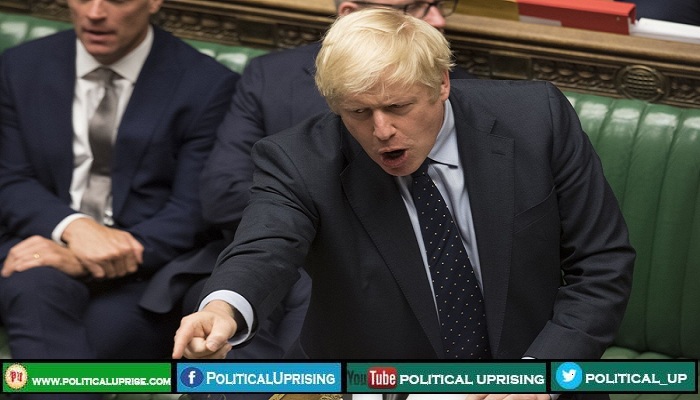Renault-Nissan former boss Carlos Ghosn confirms that he has left Japan and facing trial in Japan for alleged financial misconduct.
Former Nissan boss Carlos Ghosn has confirmed he is in Lebanon saying he refused to be “held hostage” by a “rigged” Japanese justice system, raising questions about how one of the world’s most-recognised executives exited Japan months before his trial.
Ghosn’s abrupt departure marks the latest dramatic twist in a year-old saga that has shaken the global auto industry, jeopardised the alliance of Nissan Motor Co Ltd and its top shareholder Renault SA and cast a harsh light on the fairness of Japan’s judicial system.
Read More:
- US ambassador accused of sexual misconduct
- Goldman Sachs in talks to pay hefty fine
- China called off two business delegation visits to Sweden
- Scotland minister asked Johnson to grant second referendum
- China exclude more tariffs on US goods before trade deal
- Amnesty urges Sudan deliver on protesters demands
- Tony Blair urged Labour party to end socialism
- Egypt’s el-Sisi says Saudi-led bloc position on Qatar ‘unchanged’
“I am now in Lebanon and will no longer be held hostage by a rigged Japanese justice system where guilt is presumed, discrimination is rampant, and basic human rights are denied,” Ghosn, 65, said in a brief statement on Tuesday.
“I have not fled justice I have escaped injustice and political persecution. I can now finally communicate freely with the media, and look forward to starting next week.”
Neither Ghosn’s lawyer nor a spokesman for the Tokyo prosecutors office had an immediate comment when contacted by news agency earlier about Ghosn’s whereabouts. A Nissan spokesman declined to comment.
A spokeswoman for the Lebanese embassy in Tokyo said: “We did not receive any information.”
It was unclear how Ghosn, who holds French, Brazilian and Lebanese citizenship, would have been able to leave Japan.
Lebanon does not have an extradition treaty with Japan, according to Japan’s justice ministry, making it unlikely that he could be forced to return to Tokyo to face trial.
A person resembling Ghosn entered Beirut international airport under a different name after flying in on a private jet, Japanese public broadcaster NHK reported, citing an unidentified Lebanese security official.
Ghosn’s movement and communications have been monitored and restricted to prevent his fleeing the country and tampering with evidence, the Tokyo District court previously said.
The Financial Times newspaper on Monday said Ghosn was no longer under house arrest. Citing an associate of Ghosn, the British newspaper said the ex-executive landed at Beirut’s Rafic Hariri International Airport late on Sunday.
The newspaper cited people familiar with the matter saying Ghosn had “fled” Japan and travelled to Lebanon via Turkey, arriving on Monday. One unidentified person told the newspaper Ghosn did not believe he would get a fair trial in Japan and was “tired of being an industrial political hostage”.
Ghosn is expected to hold a news conference in Lebanon in the coming days, the newspaper reported.
A person familiar with Nissan’s thinking said: “I think he gave up fighting the prosecutors in court. It’s outrageous.”
A French embassy spokesman in Tokyo declined to comment. No one was available for comment at the Brazilian embassy.
Ghosn was arrested at a Tokyo airport shortly after his private jet touched down on November 19, 2018.
He faces four charges which he denies including hiding income and enriching himself through payments to dealerships in the Middle East.
Nissan sacked him as chairman, saying internal investigations revealed misconduct ranging from understating his salary while he was its chief executive to transferring $5m of Nissan funds to an account in which he had an interest.
The case cast a harsh light on Japan’s criminal justice system, which allows suspects to be detained for long periods and prohibits defence lawyers from being present during interrogations that can last eight hours a day.
He was released from prison in March on a $9m bail, among the highest ever paid in Japan, after the court rejected an appeal by prosecutors to keep him in jail.
Ghosn has since said he is the victim of a boardroom coup, accusing former Nissan colleagues of “backstabbing” and describing them as selfish rivals bent on derailing a closer alliance between the Japanese automaker and its top shareholder Renault, of which Ghosn was also chairman.
His lawyers have asked the court to dismiss all charges, accusing prosecutors of colluding with government officials and Nissan executives to remove him in order to block any takeover of the automaker by Renault.
Michael Penn, president of the Tokyo-based Shingetsu News Agency said that the Japanese government is likely to ignore accusations of flaws in its legal system, even though “it is a view that many observers will sympathise with.”
“But, on the other hand, there’s also a large stream of thought that, even if the Japanese system is deeply flawed, it would have been much better for [Ghosn] to stay and fight, and suffer the punishment if it came, because that would be better for those he has left behind here. There will be other court cases in the future where the police and prosecutors won’t want to let suspects go because of what Ghosn did,” Penn added.
Brazilian-born of Lebanese descent and a French citizen, Ghosn began his career in 1978 at tyre maker Michelin. In 1996, he moved to Renault where he oversaw a turnaround at the automaker that won him the nickname “Le Cost Killer“.
Renault-Nissan ex-boss confirms he left Japan after alleged financial misconduct.



